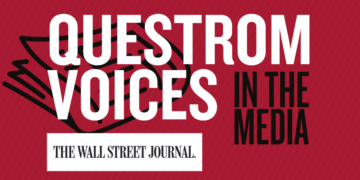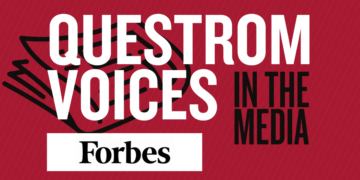Massachusetts raised the minimum wage from $12.75 to $13.50 starting on January 1, 2021. While this increase has been anticipated by business owners for years, many are concerned about implementing it during the COVID-19 pandemic, when small businesses are already struggling. Patricia Cortes, Dean’s Research Scholar and Associate Professor of Markets, Public Policy & Law, joins Insights@Questrom to discuss the effects of the state’s minimum wage on employees and employers.
HOW WILL THE INCREASE IN MINIMUM WAGE AFFECT EMPLOYERS COMPARED TO EMPLOYEES?
Patricia Cortes: The goal of the minimum wage policy is to provide workers with a living wage. Workers are thus, by design, supposed to be the main beneficiaries of the policy. An important concern with this policy is the possibility that increases in the minimum wage lower employment of lower-paid employees, leading to negative outcomes for some of the same people that it is supposed to help. Research suggests, however, that relatively modest increases in the minimum wage, particularly when the minimum wage is not that high to begin with (less than 60% of the median wage), are unlikely to have large employment consequences. Although Massachusetts has the fourth-largest minimum wage in the country, wages, in general, are also higher, such that even with the increase to $13.50, the minimum wage will be lower than half the median wage. Overall, I expect the policy to have a positive effect on workers, with very few unemployment consequences.
What kind of workers are affected by the policy? Based on calculations using Census data, I find that around 13 percent of workers 18-64 years old in Massachusetts will be directly affected by the increase in the minimum wage. Women and people of color are overrepresented in this population, and thus, will benefit the most. Minimum wage policies increase household income at the bottom of the income distribution and reduce poverty rates.
Employers, on the other hand, are most negatively affected by a higher minimum wage, as it increases the cost of one of their main inputs, affecting their bottom line. The impact across firms is heterogeneous and depends on a few factors. First, it depends on the share of the firm’s costs that are labor costs, and the share of the firm’s workers that are low wage workers. In this respect, industries such as leisure and hospitality (which includes restaurants) are the most affected. Second, it depends on the extent to which a firm can pass the cost increases to consumers via higher prices. This will mostly depend on the availability of substitutes and if the competition is affected as well. For goods that are produced both locally and non-locally, firms cannot easily increase prices, so they lose a lot of customers to competitors that are not affected by the wage increases. However, for services that are locally provided, a share of the cost increase might be passed to consumers, and the negative effect on profits will be smaller. There is evidence that this is the case for restaurants.
Additionally, research shows that higher minimum wages increase the productivity of workers and reduce turnover and absenteeism, compensating, at least partially, the negative effect of higher input prices on profits.
WAS INCREASING THE MINIMUM WAGE THIS YEAR A SMART DECISION, OR SHOULD MASSACHUSETTS HAVE HELD OFF UNTIL THE PANDEMIC HAS PASSED?
Patricia Cortes: Difficult to say. Families, especially those at the bottom of the income distribution, are struggling badly due to the pandemic, and many of the frontline workers in restaurants and grocery stores are those earning the minimum wage. A higher wage will provide some relief for them during these difficult times. At the same time, small businesses are struggling too. What needs to be done now is for the state and federal government to provide financial assistance to small businesses to guarantee their survival until things go back to normal.
WHAT ARE THE EFFECTS OF INCREASING MINIMUM WAGE ON A LOCAL AREA’S ECONOMY OVERALL?
Patricia Cortes: This is an interesting question. The minimum wage is a policy to promote equity and reduce poverty, not economic growth. Overall, I do not expect this increase in the minimum wage to have large effects on the aggregate local economy. If cutting edge research in the economic literature holds true and there are no significant negative employment effects, the economy might expand as low wage workers boost their consumption and increase aggregate demand. Additionally, consumers might experience an increase in prices.


























